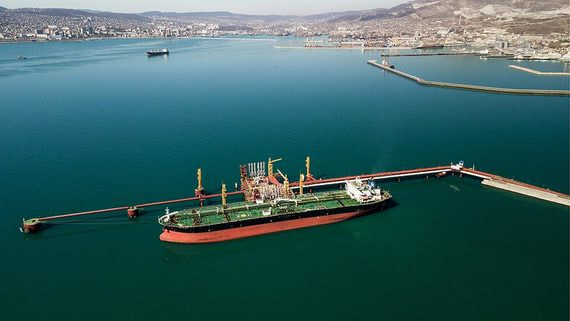Restrictions on the export of petroleum products from Russia came into force
[ad_1]

The G7 countries (G7, includes the UK, Germany, Italy, Canada, USA, France, Japan) and the European Union (EU) have set a limit on export prices for expensive oil products from Russia (for example, diesel) at $100/bbl, and for cheaper ones (fuel oil) – at the level of $45/bbl, according to the website of the European Commission. The restrictions came into force simultaneously with the ban on offshore shipments of oil products from Russia to the EU on February 5.
The G7 countries announced their decision to limit prices for oil and oil products from Russia as early as September 2, 2022. Then the rest of the EU countries, Australia, as well as several non-EU European countries joined these sanctions. On December 5, simultaneously with the EU embargo on offshore oil supplies from Russia, a price ceiling for it began to operate. It was set at $60/bbl. Already this year, this level may be revised – the “new ceiling” in this case will be at least 5% lower than the export price of Russian oil over the past period, the official journal of the EU reported on December 4.
The price ceiling for oil products is somewhat more complicated than for oil, since Russia exports oil products at different prices. As a result, the countries that joined the sanctions imposed two restrictions. The limit for diesel is $100/bbl. (about $750/ton), for fuel oil – $45 (about $315/ton).
Earlier, Vedomosti made a consensus forecast on price restrictions for petroleum products. According to this forecast, the ceiling for more expensive oil products was to be $650/t, and for cheaper products – $350/t (see Vedomosti, January 18, 2023). Some analysts also called the range for limiting the cost of diesel from $700/t to $800/t, which was 25-30% below its market price in mid-January.
In response to the cap on export prices for oil and oil products, President Vladimir Putin signed a decree in late December that prohibits exporters from selling fuel if the contract contains a link to a price ceiling. Also, on February 1, a government decree came into force, which obliges exporters to actually provide copies of contracts to the Federal Customs Service for monitoring the implementation of the decree.
The second measure, which came into force on February 5, is an EU embargo on maritime shipments of oil products from Russia, which will affect most of Russia’s fuel exports. In 2021, Europe was the largest sales market for Russian oil refiners, accounting for 62% of Russian exports. At the same time, in the same year, oil refineries (ORs) in Russia produced about 270 million tons of fuel, of which half was supplied abroad. Some of the main export oil products of Russia are fuel oil (60 million tons were exported in 2021) and diesel (40 million tons).
Therefore, European buyers, preparing for the upcoming embargo on marine exports of oil products from Russia, in the fall of 2022 began to increase imports from Russia in order to create fuel reserves. Already by December 2022, diesel fuel supplies to the EU reached a record for 10 months and amounted to 720,000 barrels per day, the IEA reported on January 18. The total export of diesel from Russia in December broke a long-term record and reached 1.2 million barrels per day. Gasoline exports also peaked at 270,000 barrels per day.
After the strengthening of anti-Russian sanctions in 2022, oil companies from the Russian Federation managed to redirect a significant part of oil exports from the European market to Asia, but it is not yet clear whether it will be possible to redirect the supply of petroleum products in the same way. China and India, which have become major buyers of Russian oil, have large refining capacities of their own.
According to the head of the Energy Development Center Kirill Melnikov, the restriction of prices for petroleum products will not significantly affect exports, since the restrictions are set at levels close to market prices. But an embargo on the export of oil products to the EU could put significant pressure on it, because it will be difficult for Russian oil refiners to redirect significant flows of oil products at once, including due to a lack of fleet.
Igor Yushkov, a leading analyst at the National Energy Security Fund, believes that in this situation, India and China can start buying oil products in Russia at a discount for consumption in the domestic market. This will allow them to increase the export of their own oil products to Europe, which will be sold at a market price, he adds.
According to Yushkov, in the coming months, Russia may increase oil exports and at the same time reduce the production and export of petroleum products due to a shortage of tankers for them. “It will not be catastrophic for the budget,” the analyst said. Melnikov clarifies that in January of this year, this trend has already begun. At the same time, in the second half of 2023, Yushkov continues, the proportions of exports of oil and oil products may return to normal, because China and the European Union will increase demand for fuel against the backdrop of economic recovery.
[ad_2]
Source link





